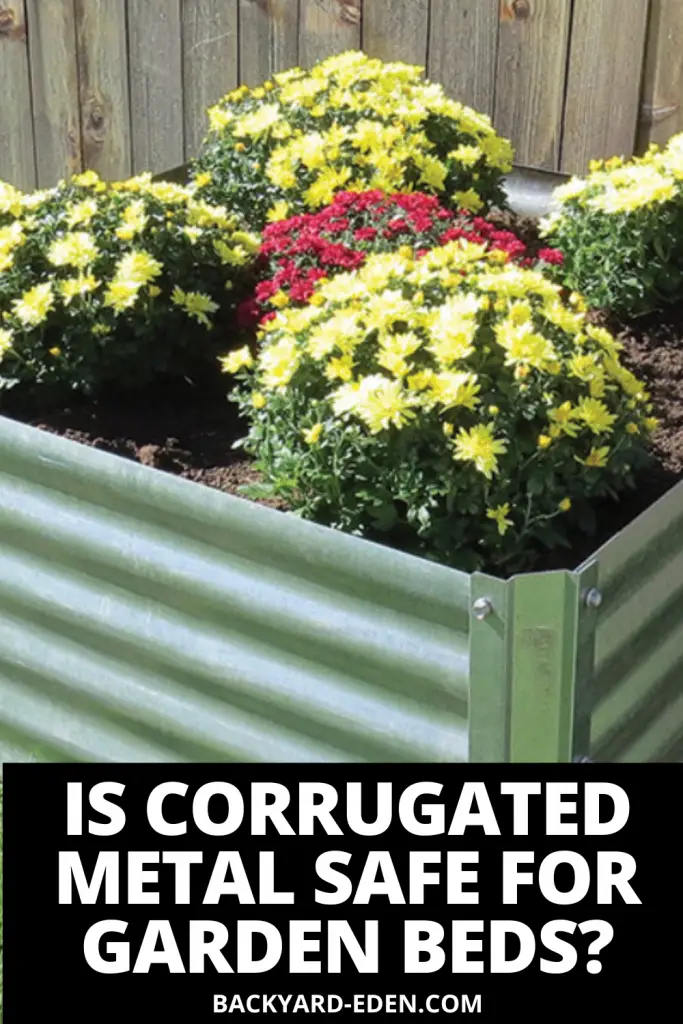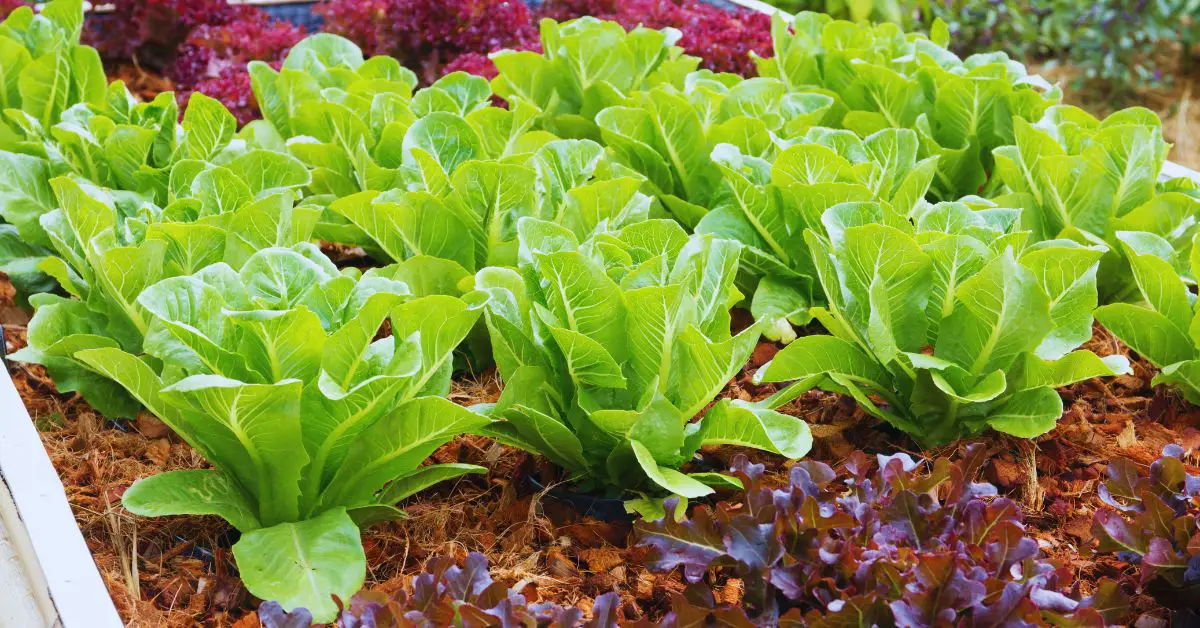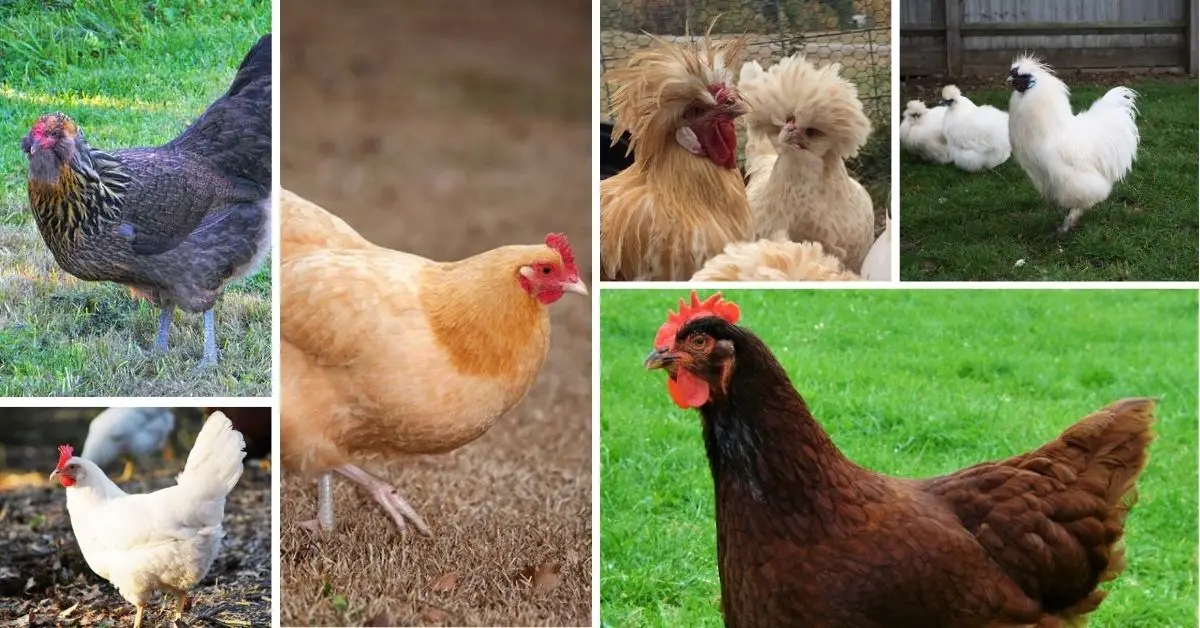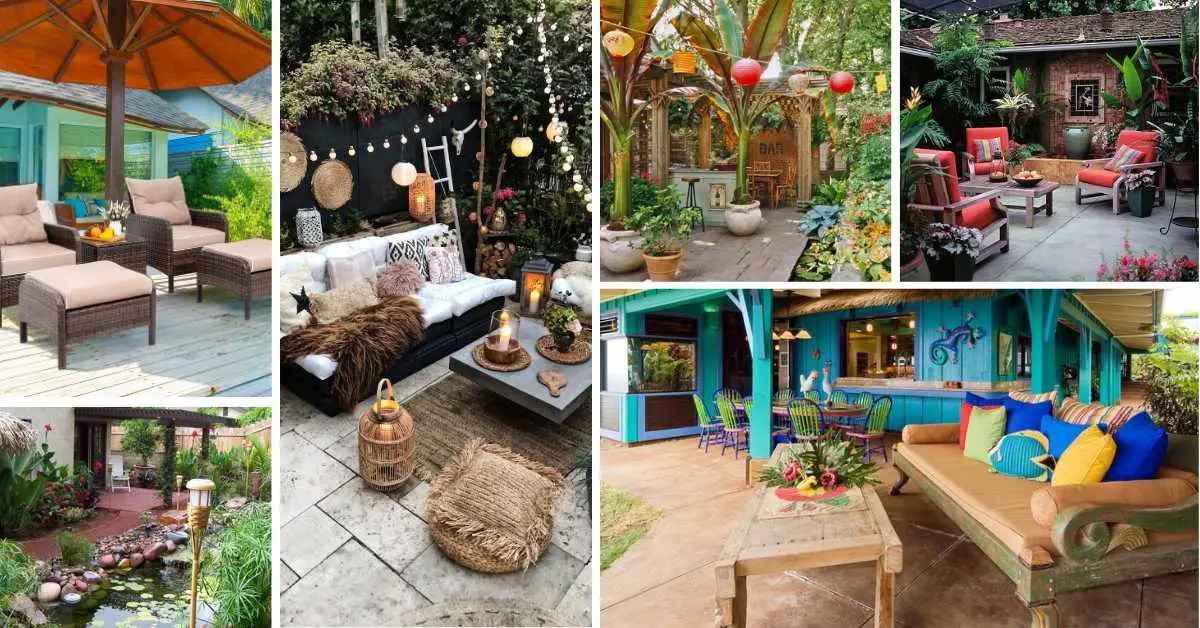Is Corrugated Metal Safe for Garden Beds?
Is corrugated metal safe for garden beds? Yes, both corrugated metal and galvanized steel is safe to make raised beds out of. Contrary to what some people believe, these materials do not pose any immediate threat to you or the wildlife around your location. Both of these materials are great to use to make beds out of because they last a long time, warm the soil up in the spring faster than wood, and make attractive raised beds.
Is there anything more charming than a little raised garden bed, brimming with fresh vegetables and herbs? If you’re like me, you may have been eyeing them enviously in gardens and yards all around town.
But is it safe to use corrugated metal or galvanized steel to make your own raised garden bed? Is there a better way to go about it? Keep reading for the answers!
Are Metal Raised Garden Beds Good?
If you’re looking for a stylish way to grow your garden, you may be wondering if metal raised garden beds are a good option. While they may not be the traditional choice, there are actually many benefits to growing your plants in a metal raised bed. For one thing, metal is a very durable material, so you won’t have to worry about replacing your raised bed every few years.
Additionally, metal is an excellent conductor of heat, so it can help to warm up the soil in your garden more quickly in the spring. And because metal is non-porous, it can also help to prevent waterlogging and root rot. So if you’re looking for a modern and low-maintenance way to grow your garden, metal raised beds may be a perfect choice.
Metal Garden Bed Pros
- Soil heats up earlier in the spring
- Soil stays warmer longer in the fall/winter
- Metal is durable and will outlast wood every time
- They look rustic but still look nice
Metal Garden Bed Cons
- Metal can get really hot in the summertime
- Metal can be expensive when building new beds
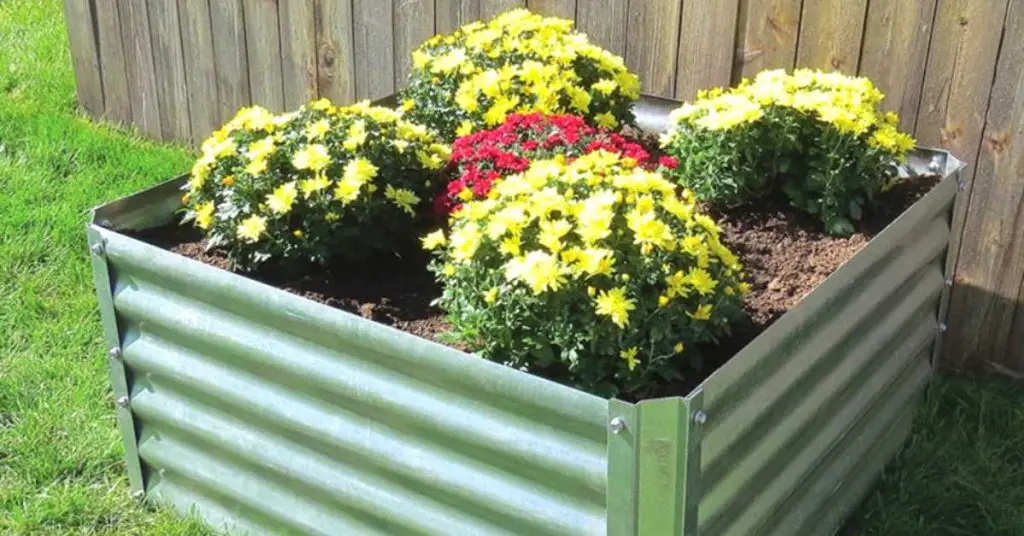
Are Metal Raised Beds Good for Plants?
Metal raised beds are a popular choice for growing vegetable plants. They are typically made from galvanized steel, which is durable and weather-resistant. Metal raised beds are also relatively easy to assemble and can be placed on almost any type of surface, including concrete, asphalt, or even bare ground.
However, there are a few potential drawbacks to using metal raised beds. One is that they can get very hot in direct sunlight, which can damage delicate plant roots. In addition, metal is an excellent conductor of heat, meaning that the soil in a metal raised bed will warm up more quickly in the spring and cool down more quickly in the fall.
This could result in shorter growing seasons for some plants. Overall, metal raised beds are a good option for growing vegetable plants, but it is important to be aware of their potential disadvantages.
Are Metal Raised Beds Safe?
People have been growing food in raised beds for centuries. In recent years, however, there has been some debate about whether or not metal raised beds are safe to use for food production. Some people worry that the metal could leach into the soil and contaminate the plants.
Others argue that as long as the metal is coated with non-toxic paint or sealant, it should be perfectly safe. Ultimately, the decision about whether or not to use metal raised beds is a personal one.
If you’re concerned about potential contamination, you may want to choose a different material for your raised beds. However, if you’re willing to take the risk, metal raised beds can make an attractive and functional addition to your garden.
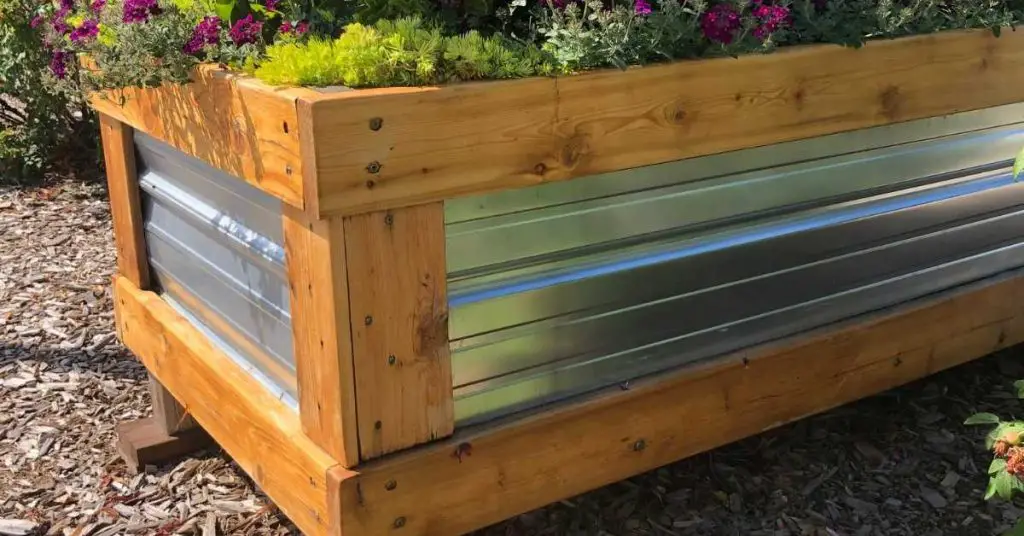
Why Are More People Interested in Using Metal in Their Garden Beds?
These days, more and more people are interested in using metal to build their beds. And there are a few reasons why this trend is becoming so popular. One of the main advantages of using metal raised beds is that they are very durable.
Unlike wooden beds, which can rot or warp over time, metal or steel raised beds will last for years (and years). Plus, they’re relatively easy to assemble – even if you’re not the handiest person in the world. And if you do happen to have a few DIY skills, you can really get creative with your design.
Another big advantage of using metal is that it’s often much cheaper than other materials (like wood). So if you’re on a budget, metal beds can be a great option.
Finally, many people simply prefer the look of metal beds. They can add a touch of industrial chic to any outdoor space – and they really stand out from the crowd. So if you’re looking for something different, metal beds could be just what you need.
What Is Galvanized Steel?
Galvanized steel is steel that has been put through a process called galvanization. This process coats the steel with a layer of zinc, which helps to protect it from rust and other corrosive elements. Galvanized steel is often used in construction, as it provides an extra level of durability.
It can also be used for art projects or other applications where a rustic look is desired. If you’re looking for a tough and versatile material to build your raised bed garden, galvanized steel may be a perfect choice.
Is Galvanized Steel Safe for Garden Beds?
Yes, galvanized steel is safe to use to make your raised beds out of. It is a durable material that will last a long time. You can use them to grow plenty of vegetables in fruits without worrying about issues along the way.
Does Zinc Leach Into Soil?
Zinc is a metal that can be found in the environment naturally. It is also used in many products, such as steel and galvanized steel. When these products break down or are disposed of improperly, zinc can leach into the soil and contaminate it.
These beds do not break down like other products or materials so leaching isn’t really anything to be concerned about in your lifetime.
How Long Do Galvanized Steel Raised Beds Last?
Galvanized steel raised beds will last as long as 30 or more as long as it is taken care of. Steel is built to last as long as you want it there for the most part. If you choose to build your metal raised garden bed out of galvanized steel and trim it with wood, you are more likely going to have to replace the wood long before the metal.
You could always seal the galvanized steel by painting it with a food safe paint to prevent it from rusting down the road but that it is up to you.
Is it safe to build metal raised garden beds?
Yes, it is safe to use metal to build raised beds to grow fruits and vegetables. Metal garden beds are a good option because they will last considerably longer than wooden raised beds and are also quite durable.
Can You Use Corrugated Metal for Raised Garden Beds?
Yes, you can use corrugated metal or sometimes referred to as “tin” to make your beds out of. This has been a big trend over the last couple of years.
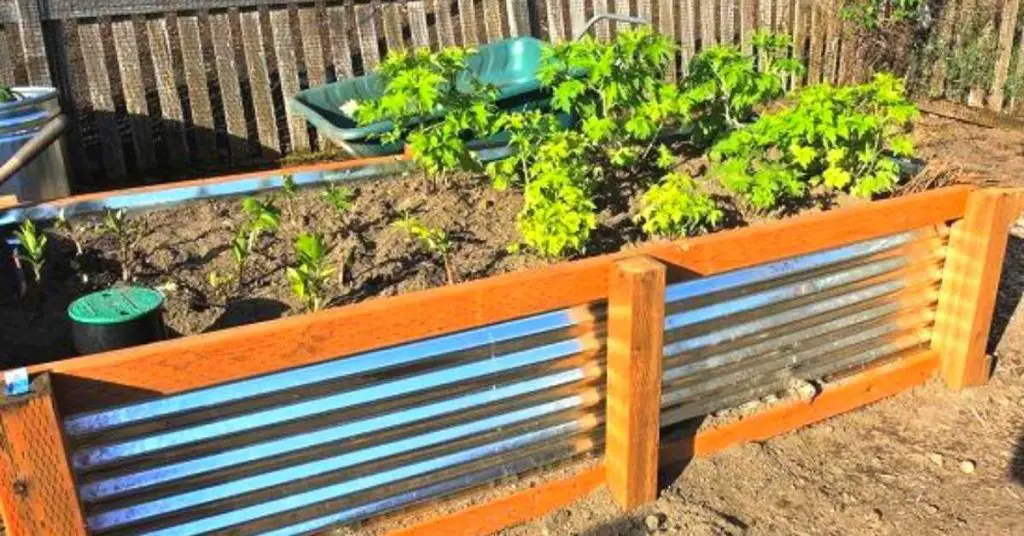
Is Corrugated Metal Safe for Garden Beds?
Yes, corrugated metal is safe to use for building raised beds. The term corrugated refers to the shape of the item or building material. Corrugated metal means that the metal has been shaped to have alternate ridges and valleys or grooves. This material is typically used for roofing and the ridges and valleys help water drain off of the roof easily.
How Long Do Corrugated Metal Raised Beds Last?
They will last as long as you want them too. Corrugated tin or metal is used for roofing on barns, sheds, and even housing and typically lasts for around 30 years or more if you take care of it.
Will Galvanized Metal Leach Into Soil?
Yes, it will gradually leach into the soil over years and years of being there but the amount of zinc that is put into the soil is so minute that it isn’t a reason for concern.
Should You Worry About Chemicals Leaching in The Soil and Reaching Your Plants?
No, you shouldn’t worry about chemicals leaching into your vegetable garden from using metal to build your raised beds. Zinc is a naturally occurring substance that can be found in soil so it is only a concern when there is extreme concentrations of it in the soil which doesn’t usually happen.
FAQs
Here are some common questions about raised bed materials:
Is Wood or Metal Better for Raised Garden?
It depends on the gardener and the type of garden bed that you are going for. They each have their own set of strengths and weaknesses. I think that metal is actually better just for the simple fact that it last longer. Metal raised beds can last 30-plus years whereas the typically untreated pine lumber bed will last 3-5 before rotting and cedar will last 10 years before needing to be replaced.
The amount of money that you will spend when building them upfront will worth it when you do not have to replace boards every few years.
As a matter of fact I have just started using a new metal raised bed kit that I purchased on Amazon and I absolutely love it. I am planning on buying more to eventually replace my wooden beds. Here is the one that I use.
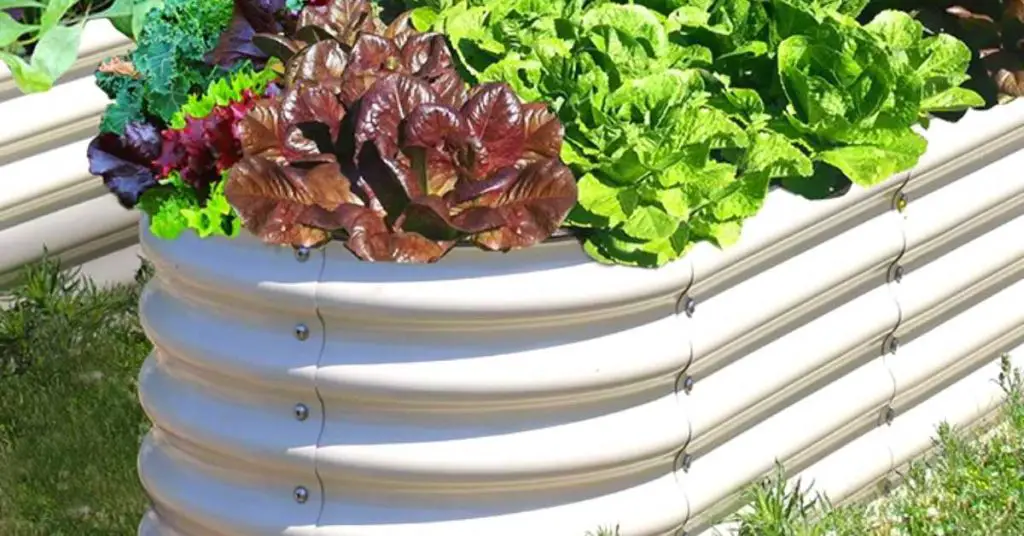
Can You Use Metal for Raised Garden Beds?
Yes, you can use metal to build raised beds. It makes a durable, long-lasting, and attractive bed to use in your garden.
Are Metal Raised Garden Beds Too Hot?
Yes, and no. Metal raised garden beds can get hot in the summer which can lead to issues if you do not plant properly in the first place. If you try to grow too many plants and have them touching the sides of the bed it can create problems for those plants as their roots will be getting too hot.
However, if you practice good planting techniques paired with some common sense – you should be fine as long as you keep your plants watered. You can also use a mulch to help keep the soil in the bed cool by blocking the sun from the soil surface.
Are Galvanized Troughs Safe to Use for Veggie Gardens?
Yes, galvanized watering or feed troughs are safe to use for veggie gardens. You can typically get these at your local feed stores where they are sold to be water or feed troughs for livestock. This can sometimes be a great option if you do not want to build them from scratch. You can also find them sometimes on places like Facebook marketplace or Craiglist if you want to pick one up used for a little less money.
Final Thoughts
So is corrugated metal or galvanized steel safe for raised garden beds? The answer is yes! Both are great options to use in your garden. If you’re looking for a more rustic look, go with corrugated metal. If you want your bed to be shiny and last longer, choose galvanized steel.
Whichever option you choose, make sure the material is weatherproof so it doesn’t corrode over time. Now that you know which material is best for your needs, get started on building your dream raised garden bed!
Related Content:
- How To Grow Corn In Raised Beds
- How to Grow Cucumbers in Raised Beds
- Can You Grow Cucumbers in a Raised Bed?
- 21 Benefits of Raised Bed Gardening
- Olle Galvanized Raised Garden Bed Review: Is It Worth the Investment?
- What Are Some Alternatives To Pressure Treated Lumber For Raised Beds?
- Can You Put a Raised Garden Bed on Grass? (The Truth Revealed)
